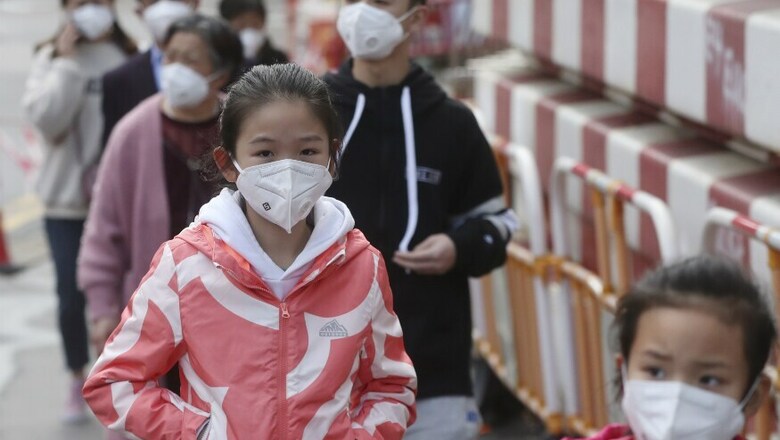
views
Hong Kong: Protesters threw petrol bombs on Sunday night at an empty public housing complex in Hong Kong that had been earmarked to become a temporary quarantine zone as the city battles the outbreak of a SARS-like virus.
The unrest came as city authorities announced anyone from Hubei, the central Chinese province where the outbreak began, would be denied entry until further notice.
City leader Carrie Lam has faced growing criticism over her administration's response to the crisis, including calls from some medical experts and politicians to close the border with the mainland.
Hong Kong has declared the novel coronavirus a public "emergency" -- the city's highest warning tier — and on Saturday announced ramped-up measures to reduce the risk of further infections.
Among them was a plan to turn a newly built but currently empty public housing block in Fanling into a quarantine facility.
The buildings would be used to house people who may have come into contact with carriers of the virus as they wait to get tested, as well as frontline medical staff worried about infecting their families.
The city has diagnosed six positive cases of the virus so far. Dozens of local residents and protesters opposed to the idea held rallies outside the complex on Sunday, with some setting up road blocks.
In the evening, police said assailants threw petrol bombs at the buildings. An AFP photographer on the scene saw fierce flames coming from the entrance of two apartment blocks before firefighters got the blaze under control.
Riot police were on scene and protesters had left, although some local residents were arguing with officers who used pepper spray.
Where to House Medics?
The Centre for Health Protection said the plan to turn the housing estate into a quarantine zone would be suspended.
The agency has already turned a holiday park in an isolated rural area into a working quarantine facility. Two other holiday parks located away from major housing estates are also ready to be used as similar facilities.
But officials say they have struggled to find hotels and spare rooms for doctors and nurses working on the isolation wards where patients are being treated. The virus outbreak comes at a time when Hong Kong is already boiling with widespread anti-government sentiment after seven months of often violent pro-democracy protests.
Chief executive Lam boasts record-low approval ratings while the police force is loathed in many neighbourhoods. The frequency and ferocity of protests have died down in the last six weeks, but sporadic clashes still take place.
On Sunday night, Lam's administration announced sweeping measures to curb arrivals from Hubei province. All mainland residents of the province, as well as anyone who has visited in the last fortnight, would be denied entry.
Nearly 300 people were killed by SARS in 2003, a tragedy that left a profound psychological impact on one of the most densely populated places on earth.
The city's ability to combat the crisis was hampered by moves in mainland China to cover up and play down the outbreak, leaving a lasting legacy of distrust among many Hong Kongers.
Animosity towards China has intensified in recent years as Beijing tightens political control over the semi-autonomous territory and as mainlanders compete with locals for jobs, property and goods in the pricey city.











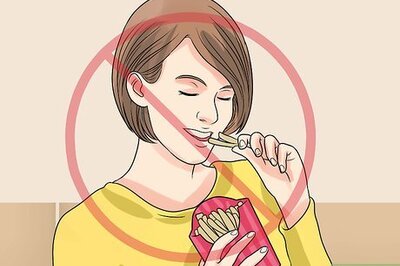
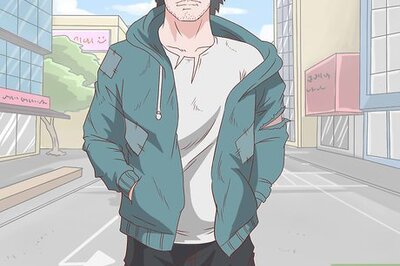
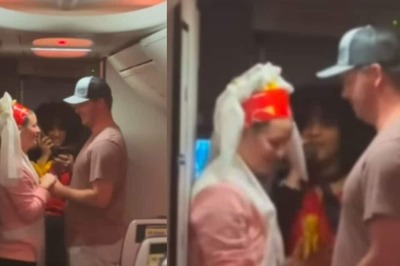
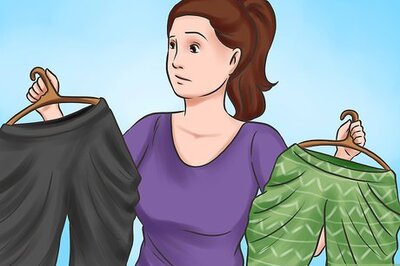


Comments
0 comment